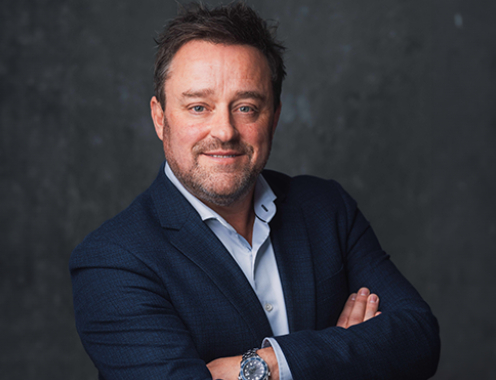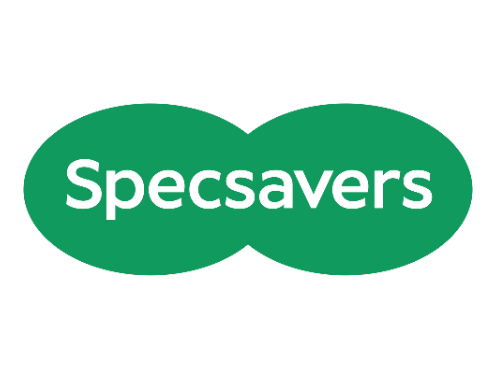Philip O’Connor - Head of Finance, NL at Specsavers


Philip O’Connor is the Head of Finance, NL at Specsavers. He has been with the business since November 2024, having started his Finance career at Marriott International in 1997.
In this interview, Philip explains how he ensures an efficient and effective recruitment process, how his leadership style has evolved during his career, and the importance of vision and values across an organization.
How have you overcome the difficulty of attracting top-level professionals in a candidate-led market?
It’s important for companies to appreciate that candidates are regularly in parallel processes. Given talented candidates have a choice, building a strong employer brand can be a key differentiator in attracting quality candidates. Embedding this in your organization's day-to-day workings provides development and training, pathways for high-potential employees, work-life balance options, and generally makes your company a great place to work and more easily retains talent.
I always try and ensure candidates have a good experience during the interview process, so they are more likely to form a positive bias when making a choice.
Make sure your organization has an efficient recruiting process. Communication should be fast. Have a solid candidate evaluation process, and always ensure candidates and internal stakeholders know what’s going on at every step.
Most mid-large companies invest in an ATS [applicant tracking system]. Always ensure the relevant decision makers are involved and aligned throughout the interview process to avoid delay on the back end. I’ve experienced a loss of a candidate due to internal processes not facilitating a quick decision.
Lastly, continue to build and utilize your network. Everything from candidates that have interviewed with you in the past, personal recommendations from your network, and meeting prospective candidates via network events.
How important is stakeholder management to you?
It’s extremely important and something I emphasize within my teams. I personally spend a significant amount of time nurturing relationships with my business partners, enabling a common understanding of the strategic Finance support needs and expectations of fellow team members.
These interactions take the form of both regular structured one-to-ones, but also more informal chats. I always keep in mind one question: What support/advice do you need to do your job effectively?
Building relationships and trust takes time and involves lots of listening and a constant feedback loop. The pay-off is that I can translate and cascade the business needs into my team, so we work towards aligned goals.
What would you say is the key to building a successful team?
It’s extremely important for me to have a systematic approach that supports the short to long-term team success.
First, clearly define the team's purpose, mission, goals, and deliverables, ensuring they align with the company's strategy. Each role should be well-defined with specific deliverables. Then, conduct a simple gap analysis on existing resources to determine if the team has the right mix of skills, diverse backgrounds, and capacity to support future business needs.
It’s critical that the team have SMART [specific, measurable, achievable, relevant, and time-bound] goals that are clearly communicated, again linked to the company strategy.
In short, the team should know what is expected of them, and who their stakeholders are with the tone set by myself as leader.
Additionally, creating goals that are challenging supports professional development and is a great motivational tool. It’s important to establish a continuous feedback loop both within the team and with stakeholders to validate performance on deliverables.
To ensure a team is future proof, I strongly believe that each team member should have a personal development plan. Within Specsavers, we have committed that every line manager will support every one of their team members in establishing a PDP [personal development plan]. We use a very simple framework - Growth Wheel - to help understand people’s performance and potential, based on agility (the ability to learn and adapt), behaviors (how we work, interact with others, and achieve goals), and capability (what skills, knowledge, and expertise is needed to be successful in a role).
Specsavers truly encourages managers to focus on supporting, engaging, and developing all colleagues, not just those currently identified as having further upwards potential.
Lastly, have fun as a team, enjoy what you do, and make sure to celebrate every success together.
How would you say your managerial leadership style has evolved over the years?
Earlier in my career - and this is probably a common tendency - I was biased towards results first, with the process and people somewhere in the mix, but not a priority. I realized over time that if you identify and hire the right people, empower, and trust them to work in the right way within solid processes and clear goals, you will realize optimal outcomes.
My leadership style now is more purpose-led, finding real meaning in what I do. This means putting people and the team first. In practice, I employ a simple framework to ensure the team are tracking well and making progress. This way of working is based on trust and accountability, giving the team freedom to take ownership, experiment, and offer different points of view, while encouraging leadership within the team itself.
I still have a strong opinion; however, it now tends to be counterbalanced by seeking feedback and input from others.
How do you keep yourself positive on the tough days?
I look to practise a sense of positivity and resilience and make a habit of it. As leaders, we should be very conscious that those around us will pick up on how we project ourselves. I find that focusing on common team goals helps anchor behavior and, if approached in a positive manner, can create an environment that will get you through the tough days. And remember to celebrate the success and progress of the team!
What attracted you to the globally renowned brand that is Specsavers?
Initially, it was a combination of business sector familiarity, brand reputation, and the broad scope of the role itself. Having spent a number of years working with a direct competitor, GrandVision, I recognized the high regard Specsavers holds within the industry, especially for their efforts in making high-quality clinical eye and hearing care accessible and affordable for everyone.
It also resonates with me that a large, international, family-owned business continues to grow with a very people-centric culture.
Regarding the role itself, the position offered a broad scope of responsibility, encompassing not only the usual Business Control, Accounting, and Tax responsibilities, but also serving as a crucial commercial partner within the management team to ensure alignment with our strategic goals.
It’s not without its challenges, as the optical retail sector in the Netherlands is extremely competitive, meaning Specsavers is constantly having to ensure customers understand and recognize the value we offer.
What are critical visions and values within an organization?
An organization’s vision should explicitly describe in the long term where the company is going and what it will look like when it gets there. It’s all about why the company exists and its purpose.
For example, at Specsavers, this is about changing lives through better sight and hearing by making expert care accessible and affordable for everyone, especially people who are disadvantaged. That’s a powerful vision – pun intended!
Values, on the other hands, are all about defining the behaviors you want within the organization to drive its long-term vision and purpose. Critical values are the ones that resonate with your employees day to day. At Specsavers, these are our 5 Cs: collaboration, curiosity, courage, compassion, and a commercial mindset.
Following on from what attracted me to Specsavers in the first place, its vision and values are what continues to give me energy on a daily basis.
Our Founder is a Business Ambassador of Operation Smile and it’s something that we’re really passionate about. So, what was the last thing that made you smile?
Seeing my wife and daughter first thing this morning. Similar to Operation Smile, these moments give perspective on what is truly important in life… people.
Thank you to Philip for speaking to Hannah Mallia, Netherlands Country Director at EMEA Recruitment.
Views and opinions contained within our Executive Interviews are those of the interviewee and not views shared by EMEA Recruitment.






You can also use your social account to sign in. First you need to:
Accept Terms & Conditions And Privacy Policy